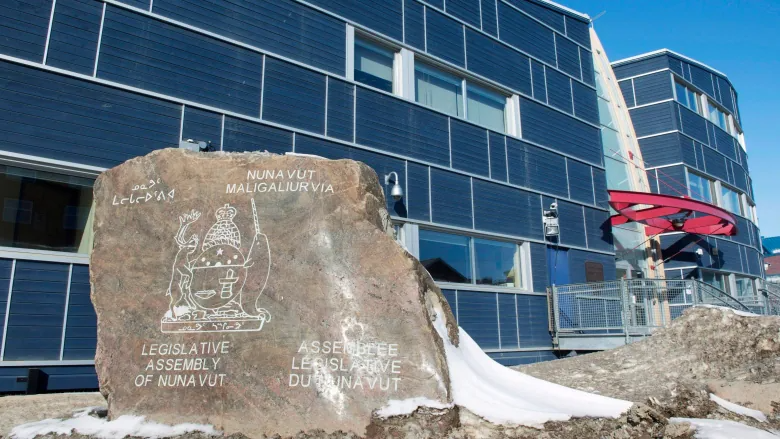Inuit representation in Nunavut public service stalls at 50%

Territorial government has long-standing goal of 85% Inuit public service
The latest report on Nunavut’s public service shows that the territorial government is still far from meeting its goal of having a predominantly Inuit workforce.
Since the creation of Nunavut in 1999, the territorial government has aimed to have a public service that is representative of its population — that is, about 85 per cent Inuit.
But at the end of March 2021, Inuit made up about 50 per cent of the government workforce — the same as in the previous two years.
The figures are included in the government’s public service annual report for 2020-2021, tabled June 13 in the Nunavut Legislature.
The report provides details about the breakdown of the 5,262 positions in the territorial government, Nunavut Arctic College, the Nunavut Housing Corp. and the Qulliq Energy Corp.
As of March 2021, 70 per cent of those positions were filled. And of those, about half were filled by Inuit.
The report also says this statistic does not reflect the fact that the actual number of Inuit employed within the government has increased “significantly” over the years — from 1,493 in 2007 to 1,833 in 2021.
The government had aimed to employ 2,151 Inuit full-time by March 2021 but missed meeting that goal by 317, the report says.
Region by region, hiring in 2020-21 saw Inuit filling 27.5 per cent of the positions in Iqaluit, 43 per cent in the Qikiqtaaluk region, 69 per cent in the Kivalliq and 79 percent in the Kitikmeot.
Of the territorial government’s 68 direct appointments, 65 were Inuit, the report says.
Gender disparities, salary differences
Other notable disparities remain between Inuit and non-Inuit in the territorial public service.
Inuit women represented the largest group in the public service at 1,365 or 38 per cent of the total in 2020-21. By contrast, Inuit men were the smallest group at 415 or 12 per cent.
The report also shows salary differences.
The average base annual salary for a government employee was $111,850. But the average annual salaries for Inuit were lower— $108,452, compared to $115,247 for non-Inuit.
Figures from the report show that Inuit employment is lowest in the department of Community and Government Services (41 per cent) and highest (82 per cent) in the departments of Culture and Heritage, and Executive and Intergovernmental Affairs.
In the Nunavut Business Credit Corp., Inuit employment stands at 25 per cent and at the Nunavut Housing Corp., 39 per cent.
Among the communities, Iqaluit holds the most territorial government positions, at 2,170. But of the 1,464 of those positions that were filled, Inuit held only 488, or 33 per cent.
Efforts to increase the number of Inuit in the territorial public service, which are cited in the report, include policy skills programs, new training opportunities and the Hivuliqtikhanut program, designed to build leadership skills and capacity.
At the end of 2020-21, a total of 196 employees graduated from that program, an increase of 74 from 2019-2020. Out of the 2020-21 graduates, 71 per cent were Inuit.
Related stories from around the North:
Canada: Gov’t staff being redeployed to help deal with closure of Yellowknife shelters in Canada’s Northwest Territories, CBC News
Greenland: Greenland to reduce services amidst staffing shortages in health care system, Eye on the Arctic



